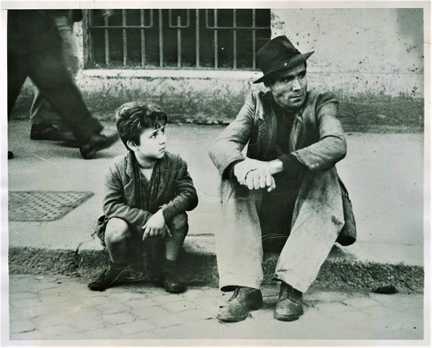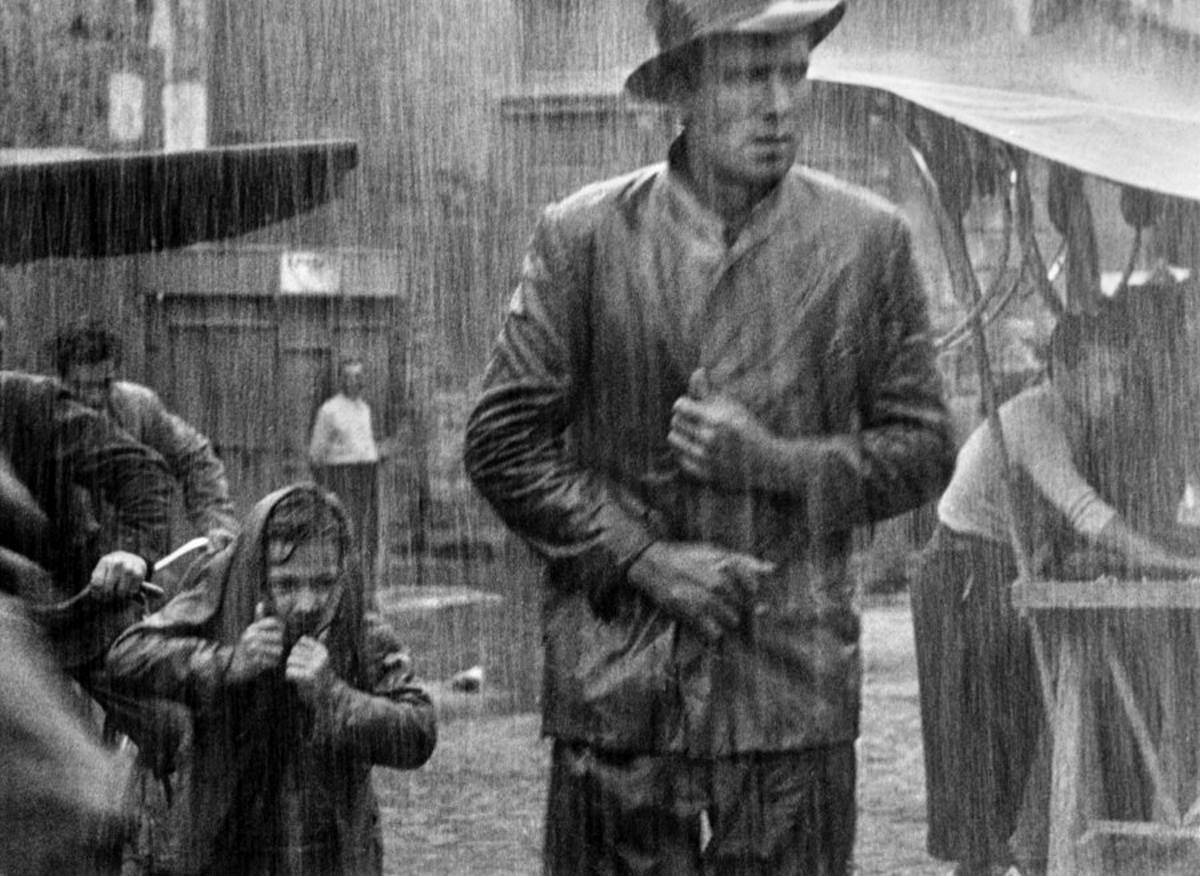
Part of a series reviewing films on the Kanopy streaming service, available to all FIU students, faculty, and staff.
As we close in on the 70thanniversary of the release of Vittorio De Seca’s Academy-Award winning film Bicycle Thieves (Ladri de Biciclette),a newly digitally restored version of the Italian Neorealist film will make its Miami premier at the Miami Beach Cinematheque this Thursday, October 18th, at 7:00 p.m., as part of the World Cinema theme of their Interactive Archives Project. This simply constructed classic, widely regarded as one of the greatest films of all time, follows Antonio Ricci (Lamberto Maggiorani), a poverty-stricken man who’s desperate for a job that will enable him to support his inquisitive son Bruno (Enzo Staiola), wife Maria (Lianella Carell), and their newborn child.
After two years of unemployment, Antonio is finally offered a job plastering movie posters around Rome, but the gig requires him to have a bike, which he can’t afford. Out of desperation, him and his wife begrudgingly pawn off their linen bed sheets in exchange for a bicycle. But, in a heart-wrenching sequence, the bike is stolen on his very first day of work.
Bicycle Thieves is a perfect example of a film birthed out of the Italian neorealist movement due to its use of real life locations, nonprofessional actors, and the telling of lean stories that show the harshness of life in post-war Italy. Even Lamberto Maggiorani, the film’s lead actor, was a lowly steelworker without any experience in front of the camera, yet him and Enzo Staiola, his son in the movie and another nonprofessional actor, are still able to give an intimate, visceral performance that could go toe-to-toe with the best of Hollywood.

It’s also safe to say the humanism in the film was not brewed up unintentionally. In his journal, the film’s screenwriter, Cesare Zavattini, talks about how he and De Seca spent time in brothels and even interacted with a psychic while developing the story. Their quest for deeper insight into the lives of lower-class Roman citizens inspired characters and settings that pop up throughout the film.
In Bicycle Thieves, the illusion takes a back seat to reality. The story is modest, stark, well-paced, and, as we follow Antonio and Bruno deeper into their trek to find their bike, it becomes emotionally overwhelming for the characters and the viewer alike. The bicycle is a small thing, maybe, but it certainly means the world to them.
 Akil R. Anderson is a senior at Florida International University, pursuing a Bachelor’s Degree in English with a minor in History, along with a Certificate in Film Studies.
Akil R. Anderson is a senior at Florida International University, pursuing a Bachelor’s Degree in English with a minor in History, along with a Certificate in Film Studies.
